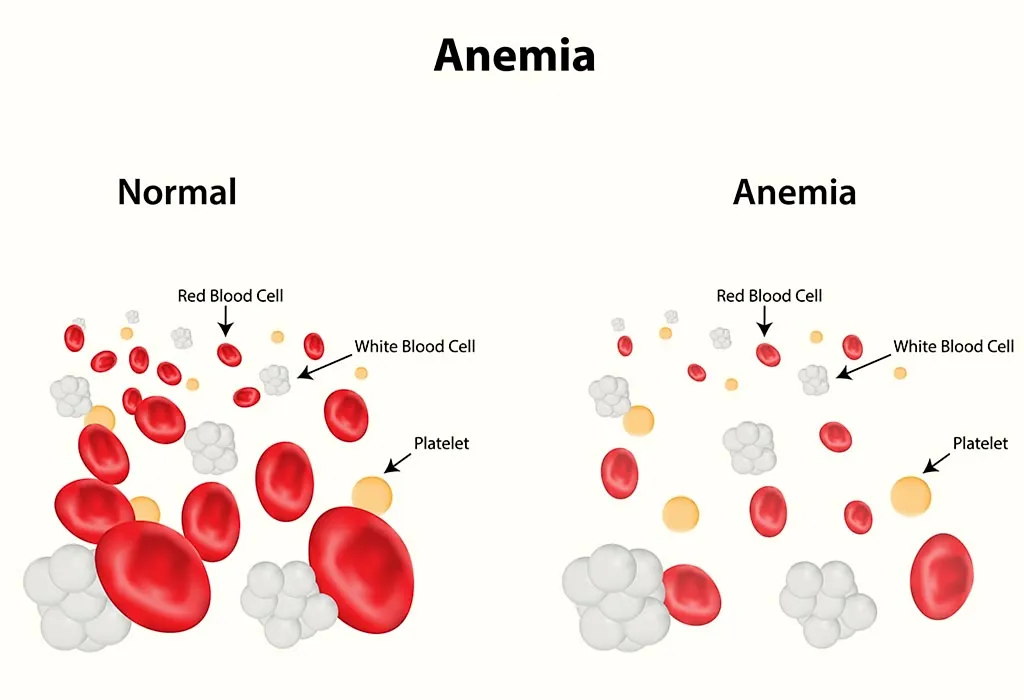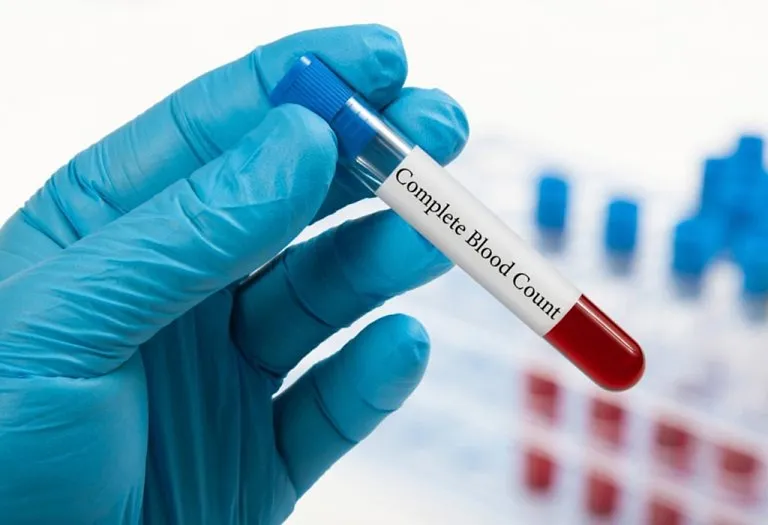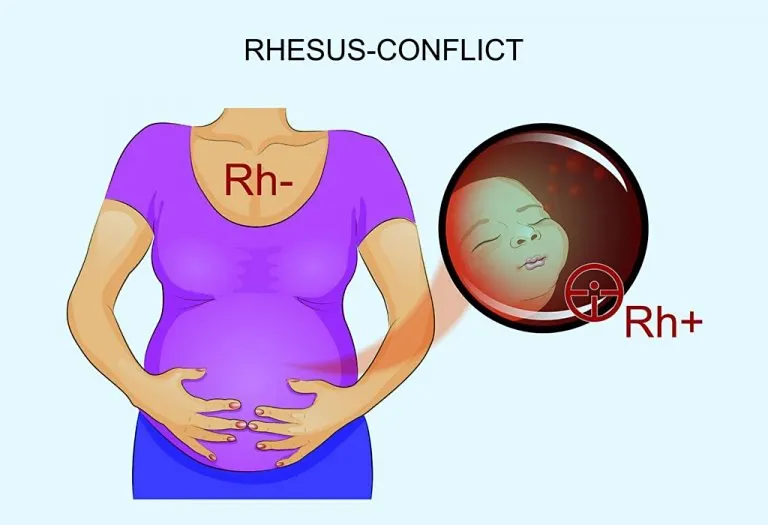CBC (Complete Blood Count) Blood Test in Pregnancy

- What Is the CBC Test?
- Is the Complete Blood Count Test Necessary?
- Benefits and Risk of Undergoing a Complete Blood Count (CBC) Test in Pregnancy
- What Does This Blood Test Measure?
- How to Prepare for the CBC Test?
- How Is the CBC Test Done?
- What Do the CBC Test Results Really Mean?
- What Is the Cost of a CBC Test?
- FAQ
During pregnancy, several tests are used to evaluate the health of the foetus. In this article, we’ll tell you about the Complete Blood Count (CBC) test and its importance. The Complete Blood Count (CBC) test is a fundamental component of prenatal care, offering essential insights into a pregnant woman’s overall health and well-being. By undergoing a CBC in pregnancy, expectant mothers and their healthcare providers gain valuable data to monitor any potential abnormalities and ensure a healthy pregnancy journey.
What Is the CBC Test?
Complete Blood Count Test (CBC) test is done in the early stages of pregnancy to determine any health issues the expecting mom may have developed. This test monitors the red blood cells that carry oxygen throughout the body. If the levels of iron in your blood are low, you may be prescribed iron supplements. The CBC also determines the count of red blood cells, white blood cells and platelets.
Is the Complete Blood Count Test Necessary?
The CBC test conducted during the early months of pregnancy counts the three types of blood cells and gives a general idea about the expecting mom’s health.
1. Anaemia
Ensuring optimal oxygen supply for cellular growth, tissue function, and fetal development relies on monitoring red blood cells and haemoglobin levels. Lower values might suggest anaemia, a serious condition addressable with iron supplements or alternative therapies.
2. Infection
White blood cells play a vital role in combating infections that could impact fetal development or pose health risks for both you and your baby. Abnormally high or low levels might indicate an ongoing infection or potential challenges in immune response during pregnancy.
3. Clotting Disorders
Platelets, essential for blood clotting, are crucial post-injury. Insufficient platelets may lead to excessive bleeding during childbirth. Conversely, elevated platelet levels may elevate blood clot risk, affecting maternal and fetal well-being.
Benefits and Risk of Undergoing a Complete Blood Count (CBC) Test in Pregnancy
The Complete Blood Count (CBC) test is generally considered safe, with the benefits of early complication detection and treatment far outweighing potential risks. The risk of infection or bleeding at the blood sample site is minimal. However, if you’re on blood-thinning medication, your doctor might recommend a temporary pause to minimize bleeding risks during the test.
Keep in mind that while the CBC test is effective in identifying many pregnancy-related issues, it’s not infallible. Some conditions may go undetected, and false results are possible. It’s essential to discuss any concerns with your healthcare provider before undergoing the test. Mild discomfort or bruising at the sample site may occur, but these usually resolve swiftly on their own.
What Does This Blood Test Measure?
Wondering what CBC blood test measures? Let’s take a look the at the points given below to learn more about this topic:
1. Red Blood Cells (RBCs)
The levels of red blood cells and haemoglobin can indicate her capability to carry oxygen via blood to the fetus. Low haemoglobin levels make pregnant women prone to fatigue and sickness. Iron supplements are prescribed to correct this situation.
2. White Blood Cells (WBCs)
White blood cells play an important role in the human body, especially during pregnancy. There are five types of WBCs- basophils, neutrophils, eosinophils, lymphocytes and monocytes. All of these are important parts of the immune system, which is greatly responsible for keeping the mother and the child free from any type of infection. This also finds out if the mother has any blood-related diseases, like sickle cell anaemia or leukaemia.
3. Platelets
Platelets make up the trio of the types of blood cells and are the smallest of the three types; however, their importance is huge. Platelets are responsible for clotting of the blood. If the count of platelets is too low, it means that the blood will not clot soon enough, while the number being high means that the mother is susceptible to sudden internal blood clots and haemorrhages.
4. Haemoglobin (Hb/Hgb)
Haemoglobin is the protein in your blood that holds oxygen.
5. Hematocrit (Hct)
This calculates the percentage of red blood cells in your blood.
6. Mean Corpuscular Volume (MCV)
MCV measures the average size of your red blood cells.
How to Prepare for the CBC Test?
If your blood will be tested only for the complete blood count, you can eat and drink normally before the test. If it’ll be used to conduct other tests, too, your doctor may ask you to fast for a specific number of hours.
How Is the CBC Test Done?
Getting the CBC test done requires just a few minutes. A nurse will insert a needle into your arm and take a blood sample. This sample will be sent to a pathology lab for testing. You can leave the clinic after giving your blood sample.
What Do the CBC Test Results Really Mean?
The pregnancy CBC test results help to detect the onset of illnesses in a pregnant woman.
- If WBC count is low, you are more prone to infections. The normal range is 4,500 to 10,000 cells per microliter (cells/mcL).
- If your RBCs are low in count, you may have anaemia. The normal range for men is 4.5 million to 5.9 million cells/mcL; for women, it’s 4.1 million to 5.1 million cells/mcL.
- The normal range of haemoglobin for men is 14 to 17.5 grams per deciliter (gm/dL); for women, it’s 12.3 to 15.3 gm/dL.
- A low score on the Hct range scale may be a sign of iron deficiency. A high score could mean you’re dehydrated. The normal range for men is between 41.5% and 50.4%. For women, the range is between 36.9% and 44.6%.
- If your RBCs are bigger than normal, your MCV goes up. That could happen if you have low vitamin B12 or folate levels. If your red blood cells are smaller, you could have a type of anaemia. A normal-range MCV score is 80 to 96.
- The normal range of platelets is 150,000 to 450,000 platelets/mcL.

Here are the normal CBC values from pregnancy first to third trimesters.
First Trimester:
| Unit | Count | |
| HB | g/dl | 11.0-14.3 |
| RBC | 10^6/ul | 3.52-4.52 |
| HCT | % | 31-41 |
| MCV | fl | 81-96 |
| MCH | pg | 27-32 |
| MCHC | g/dl | 33-37 |
| RETICS | % of RBCs | 0.2-2.0 |
| PLT | *10^3/ul | 150-400 |
| WBC | *10^3/ul | 5000-13000 |
| Differential leucocytic count: | Absolute values/ul | Percentage % |
| BASO | less than 110 | 0-1 |
| EOSINO | less than 500 | 1-6 |
| NEUTR | 1800-7500 | 40-70 |
| STAFF | 0-5 | |
| SEGM | 40-70 | |
| LYMPH | 1000-3500 | 20-45 |
| MONO | 80-880 | 2-8 |
Second Trimester:
| Unit | Count | |
| HB | g/dl | 10.0-13.7 |
| RBC | 10^6/ul | 3.2-4.41 |
| HCT | % | 30-38 |
| MCV | fl | 82-97 |
| MCH | pg | 27-32 |
| MCHC | g/dl | 33-37 |
| RETICS | % of RBCs | 0.2-2.0 |
| PLT | *10^3/ul | 150-400 |
| WBC | *10^3/ul | 6200-14800 |
| Differential leucocytic count: | Absolute values/ul | Percentage % |
| BASO | less than 110 | 0-1 |
| EOSINO | less than 600 | 1-6 |
| NEUTR | 2000-8000 | 40-70 |
| STAFF | 0-5 | |
| SEGM | 40-70 | |
| LYMPH | 1500-4000 | 20-45 |
| MONO | 80-880 | 2-8 |
Third Trimester:
| Unit | Count | |
| HB | g/dl | 9.8-13.7 |
| RBC | 10^6/ul | 3.1-4.44 |
| HCT | % | 28-39 |
| MCV | fl | 91-99 |
| MCH | pg | 27-32 |
| MCHC | g/dl | 33-37 |
| RETICS | % of RBCs | 0.2-2.0 |
| PLT | *10^3/ul | 150-450 |
| WBC | *10^3/ul | 5000-13000 |
| Differential leucocytic count: | Absolute values/ul | Percentage % |
| BASO | less than 110 | 0-1 |
| EOSINO | less than 600 | 1-6 |
| NEUTR | 2000-8000 | 40-70 |
| STAFF | 0-5 | |
| SEGM | 40-70 | |
| LYMPH | 1500-4000 | 20-45 |
| MONO | 80-880 | 2-8 |
What Is the Cost of a CBC Test?
– In India, the CBC test costs between INR 300-800.
– In the USA, the CBC test costs between $10.00 to $2,700.
FAQ
1. Can a Complete Blood Count (CBC) Test Determine Pregnancy?
No, a CBC test is not designed to detect pregnancy. Its purpose is to analyze blood cell components. It does not measure the presence of the hormone human chorionic gonadotropin (hCG), which is produced by the placenta after a fertilized egg attaches to the uterine wall.
As we mentioned above, the CBC test is extremely important to gauge the overall health of the mother and detect the presence of viruses in her body. Thus, it becomes possible to safeguard the health of both the mother and the baby.
References/Resources:
1. Prenatal Panel; medlineplus.gov; https://medlineplus.gov/lab-tests/prenatal-panel/
2. Complete blood count (CBC); mayoclinic.org; https://www.mayoclinic.org/tests-procedures/complete-blood-count/about/pac-20384919
3. CBC blood test; mountsinai.org; https://www.mountsinai.org/health-library/tests/cbc-blood-test
4. Blood Test: Complete Blood Count; kidshealth.org; https://kidshealth.org/en/parents/labtest4.html
5. Anemia During Pregnancy; my.clevelandclinic.org; https://my.clevelandclinic.org/health/diseases/23112-anemia-during-pregnancy
Blood Tests during Pregnancy
Rh Factor and Antibody Screening
Common Trimester-wise Tests during Pregnancy
Was This Article Helpful?
Parenting is a huge responsibility, for you as a caregiver, but also for us as a parenting content platform. We understand that and take our responsibility of creating credible content seriously. FirstCry Parenting articles are written and published only after extensive research using factually sound references to deliver quality content that is accurate, validated by experts, and completely reliable. To understand how we go about creating content that is credible, read our editorial policy here.




































